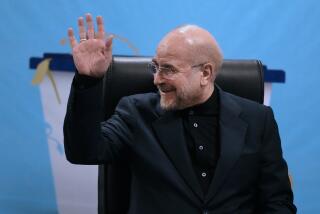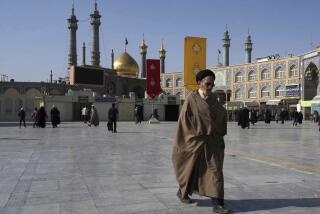Welcome Signal From Iran
- Share via
The Islamic Conference in Tehran this week has brought a highly visible end to Iran’s international isolation and an apparent easing of its long estrangement from its Arab neighbors in the Persian Gulf region. It has also, if unintentionally, put on display the widening political divisions between the dogmatic clerics who have held the reins of power since the revolution of 1979 and their more pragmatic rivals. For now, let there be no mistake about it, the old guard continues to dominate. But a welcome smell of change is in the air.
The impulse for change was most powerfully signaled last May when 70% of Iranian voters scorned the candidate of the ruling ayatollahs and chose as their president Mohammad Khatami, himself a cleric but far more modern in his outlook and moderate in his words than the ruling clique is comfortable with.
The contrast between Khatami’s ideas of where Iran should be headed and where its masters have long had it mired was made clear before the 55 members of the Islamic Conference. Ayatollah Ali Khamenei, the nation’s supreme spiritual leader, delivered a fiery speech that boiled over with hostility toward the West, especially the United States, which he identified as Islam’s chief enemy. Khatami, in his address, chose to emphasize creation of a new “Islamic civil society” in which tyranny would be abolished and the rule of law would prevail, and he endorsed dialogue to achieve “deep-rooted understanding of the cultural and moral dimensions of other societies.” Where Khamenei welcomed confrontation, Khatami endorsed conciliation.
Khatami, unfortunately, does not control Iran’s foreign relations. But he does represent a very sizable constituency eager for change, certainly in Iran’s repressive domestic policies and probably in its relations with the United States. The Clinton administration responded quickly and favorably, repeating American willingness to open talks with Iran on political issues. The radical clerics clearly are not interested. But if the signal being sent further emboldens and encourages Iran’s moderates, it will have achieved its objective.
More to Read
Sign up for Essential California
The most important California stories and recommendations in your inbox every morning.
You may occasionally receive promotional content from the Los Angeles Times.










